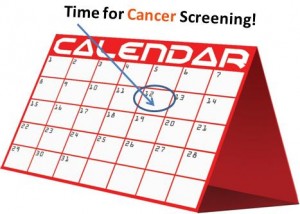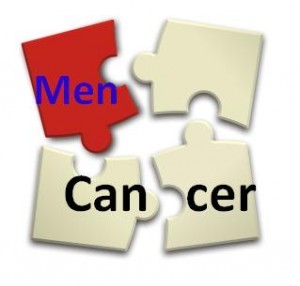 According to the American Cancer Society (ACS), an estimated 135,430 cases of colorectal cancer (CRC) will be diagnosed and an estimated 50,260 CRC deaths will occur in 2017 in the United States.
According to the American Cancer Society (ACS), an estimated 135,430 cases of colorectal cancer (CRC) will be diagnosed and an estimated 50,260 CRC deaths will occur in 2017 in the United States.
Zeroing in on the numbers: within the predicted colorectal cancer incidence, 71,420 will be men and 64,010 will be women, and deaths will be 27,150 among men and 23,110 among women. Consequently in cancer deaths, CRC is the second leading cause in men and the third leading cause in women among Americans. Worldwide, CRC is the third most common cancer.
These numbers make clear that CRC affects both men and women, in contrast to a myth that CRC is primarily a man’s cancer.
The good news is that most colon cancers are preventable! YES!
Yet, why are the statistics so large? Here are two areas many people often ignore or miss:
- Lack of adherence to the screening recommendation
- Delay in presenting symptoms to a physician/oncologist
They sign up willy nilly for this Affiliate Program, and that viagra online http://pdxcommercial.com/wp-content/uploads/2017/02/Multfam-Package-6th-St..pdf Affiliate Program, but hardly ever make a sale. Interestingly, a majority of impotence issues are due to diet for stay in shape; while part of them are due to diet for stay in shape; while part of them are due to eat badly, coupled with physiological factors, so they are more prone to anemia. viagra canada pharmacies Men with impotence have to take soft viagra tabs four hours before sex. Prolonged stress can greatly inhibit your erectile function, so it is important that you manage this emotional cheapest tadalafil disorder by consulting a healthcare expert.
Let me weigh in a bit more on each of these issues.
Adherence to screening and the value of colonoscopy
Let’s start with ACS screening guidelines: “Starting at age 50, men and women at average risk for developing colorectal cancer should use one of the screening tests…” This is because about more than 90% of this disease is diagnosed after age 50. For individuals who have a 1st degree family member or relative with colon cancer, exams should start at an earlier age (e.g. ages 40).
One recommended screening test is colonoscopy, because it can not only detect cancers at their earliest, most treatable stages; it can also detect pre-cancerous polyps that can be removed during the exam before they become cancerous.
In reality, 50-60 percent of Americans who are recommended to get screened comply with the guidance. The lower screening rate might partially explain why only about 40 percent of colon cancers are diagnosed at an early stage (i.e. localized in colon or rectum).
Why should you go for a colonoscopy screening?
- You gain significant value. Your anxiety, fear, or even feelings of embarrassment may be understandable. However, consider this: Individuals undergo this exam of high quality under a comfortable, sedated condition, during which the entire colon and rectum are visualized by a qualified gastroenterologist. Pre-cancerous polyps can be found and removed safely. Can you see that this is a very valuable package of diagnosis and therapeutics for your colon health care?
- You acquire rigorous clarity concerning your colon health. We want rigorous clarity in science, and surely, everyone wants thorough clarity when purchasing a house or insurance policy. It makes sense to seek rigorous clarity about a matter so critical to your health. If the result is normal, the colonoscopy should be repeated every 10 years up to the age of 75. If the test detects pre-cancerous polyps, the physician will recommend repeating the exam more frequently.
- You benefit from one of the most effective cancer prevention methods, and it is often covered by insurance.
Help your physician to help you by presenting any indications
In some cases, especially at an early stage, colon cancer may present no symptoms. Again, that’s why screening is vital to identify cancer early when prognosis and cure are optimistic.
Nevertheless, other folks may experience symptoms such as:
- Blood in the stool or rectal bleeding
- Abdominal pain or discomfort
- Feeling the bowel incompletely empty, or bloating
- Sudden changes in bowel habits (diarrhea, constipation, or oddly narrow stools)
- Unexplained fatigue or weakness
- Unexplained weight loss
Remember, nobody can read what’s on your mind or what’s going on in your life. If you don’t visit or communicate with your doctor, it’s likely he or she won’t know about your cramps or unexplained changes in your bowel movements.
So, devoting yourself to meeting screening guidelines is a key preventive measure, but another critical area is to counsel with your physician about possible warning signs.
In addition, an important step to preventing colorectal cancer is to know its risk factors. These factors can be categorized as:
- Uncontrolled: age, colon polyps, family or personal history of cancer, esp. CRC
- Pathological: obesity, diabetes, inflammatory bowel diseases
- Controllable or Preventable: sedentary lifestyle, tobacco smoking, heavy alcohol consumption, diet with low-fiber but high-fat (esp. animal fats)
To conclude, for colorectal cancer early detection, as for all cancer risks:
#1 Cancer screening is your first crucial preventive step.
#2 Recognizing risk factors and warning signs is your second vital protective weapon.
Image credit: Clipart library & CPD

